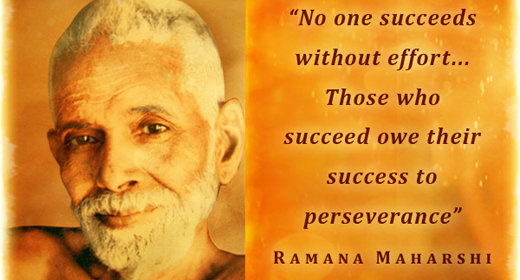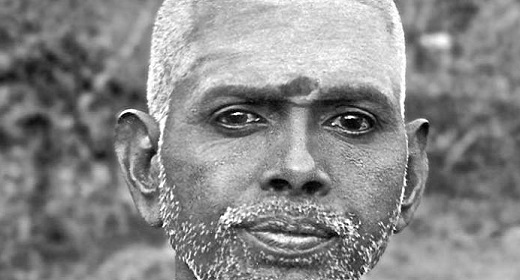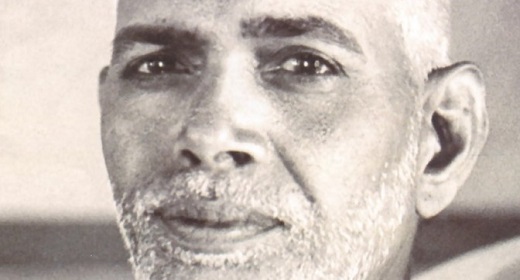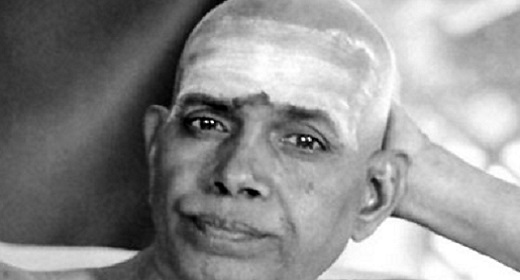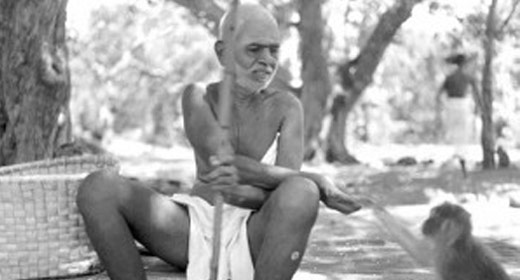Hindu sage Ramana Maharshi was a proponent of Advaita Vedanta and advocated self awareness as a means of self-realization. He was born Venkataraman Iyer on December 30, 1879 in the village of Tiruchuli in Tamil Nadu, India. He was popular in school, good at sports, intelligent with an exceptional memory. At age 16 he came across a copy of Sekkizhar’s Periyapuranam, a book that describes the lives of 63 Saivite saints. He was so inspired by it that he began devotional visits to the nearby Meenakshi Temple in Madurai . Associated with this bhakti he later reported fever-like sensations and went through a life-changing experience. He spontaneously initiated a process of self-enquiry that culminated, within a few minutes, in his own permanent awakening. He left home for the sacred mountain Arunachala, Tiruvannamalai. He lived there for the rest of his life, first in temples and caves and later in Ramanasramam, the ashram which grew around him in Arunchala.
He received his full name Bhagavan Sri Ramana Maharshi in 1907 from Ganapati Sastri. In later life, he came to be regarded as Dakshinamurthy, an aspect of Shiva as a guru. From 1911 on, he also attracted western devotees and gained further popularity through Brunton’s book A Search in Secret India. Ramana applied Vedanta teachings to answer questions from devotees. He insisted that “awareness of the “I” thought was a pre-requisite for self-realisation”.
In November 1948, a tiny cancerous lump was found on the Maharshi’s arm and was removed in February 1949 by the ashram doctor. After another growth appeared, Ramana refused his amputation of his arm. By April 1950, Ramana was too weak to go to the hall, and visiting hours were limited. Visitors would file past the small room where he spent his final days to get one final glimpse.

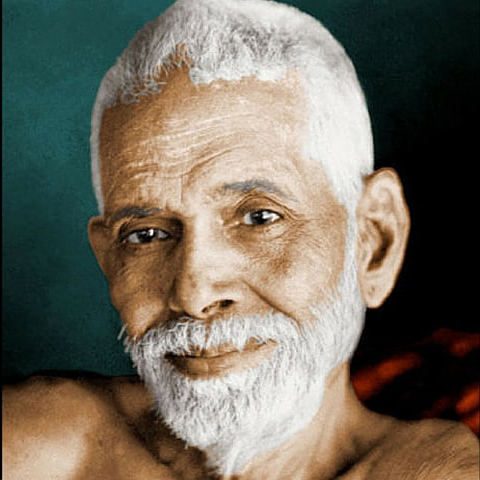
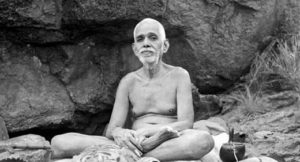
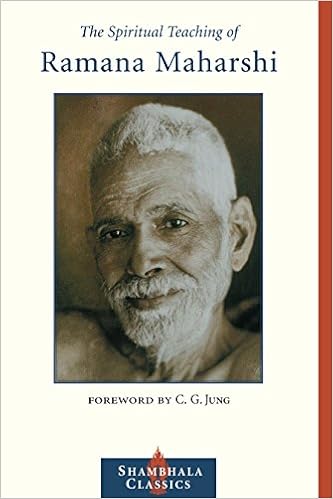
![Who Am I? by [Maharshi, Sri Ramana]](https://images-na.ssl-images-amazon.com/images/I/419If8rn5BL.jpg)


